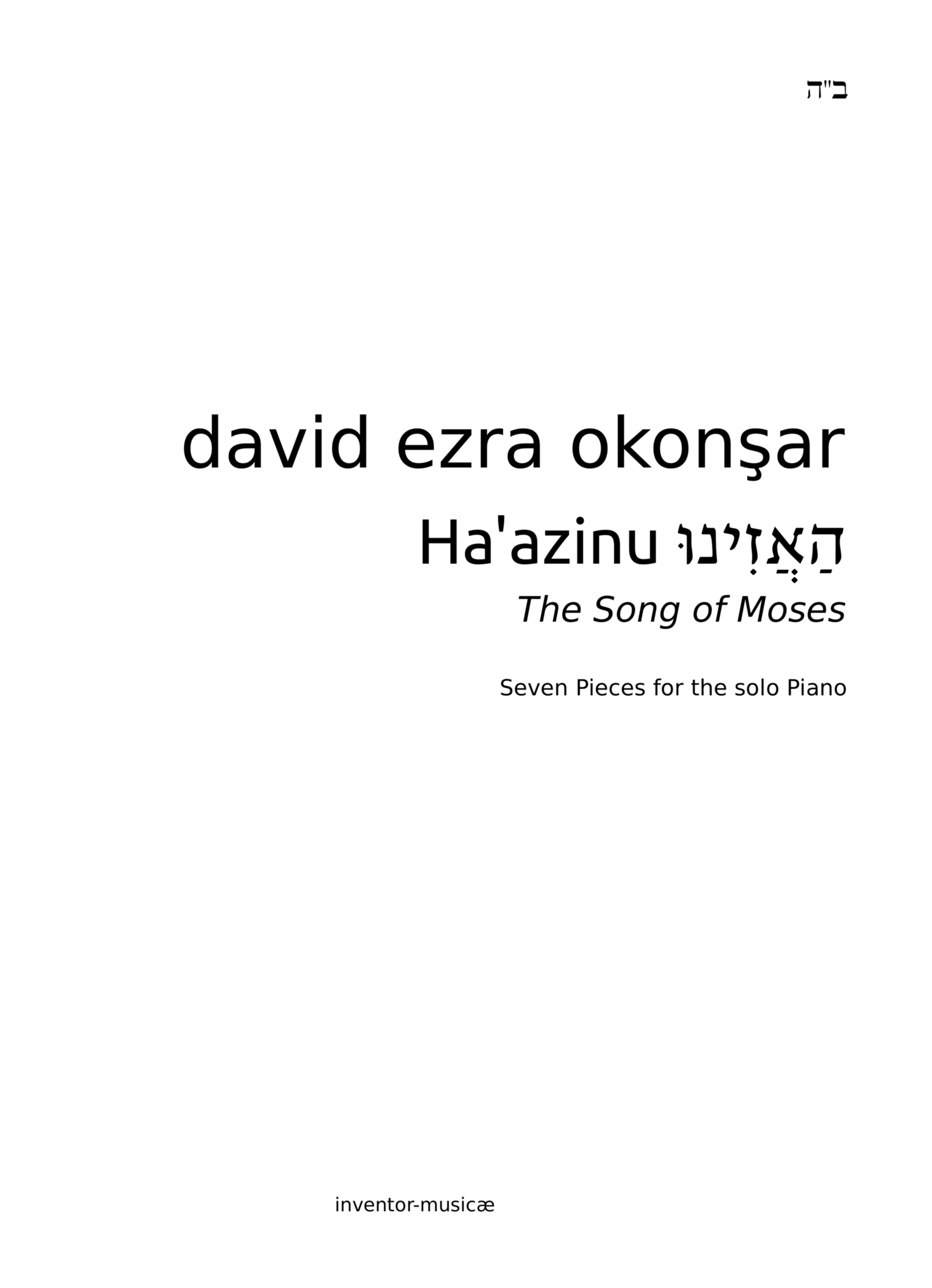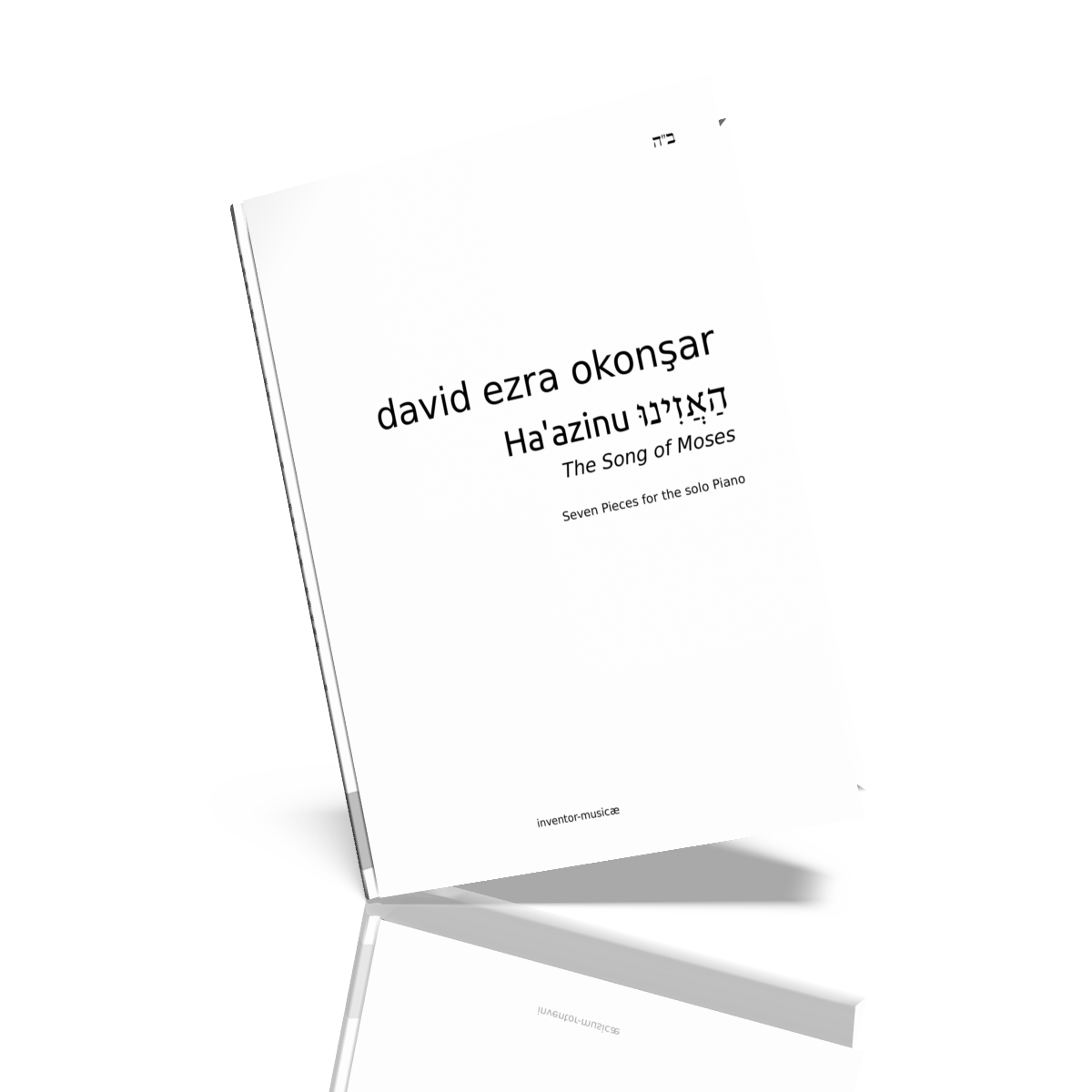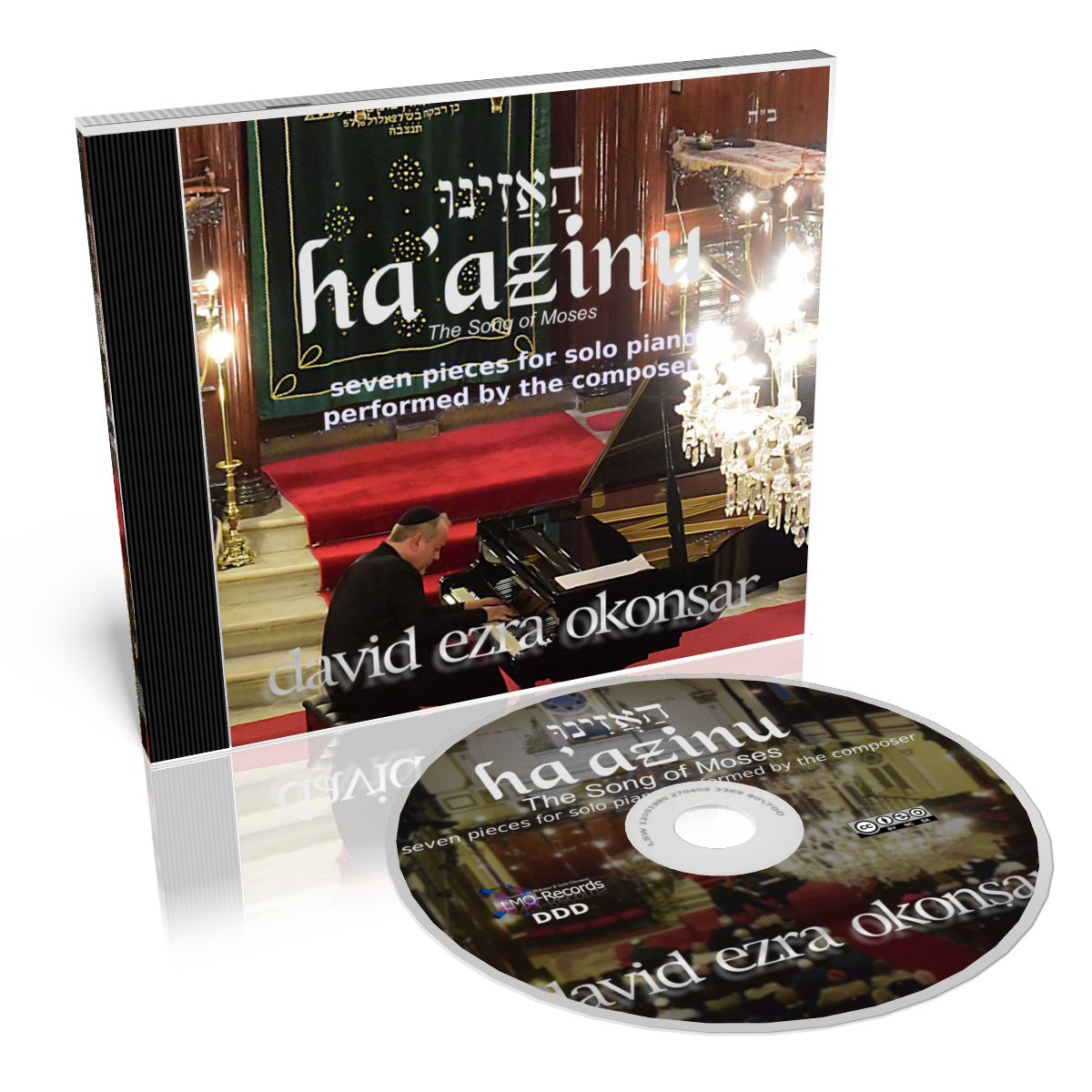
Haazinu (Listen!)
The Song of Moses
Seven Pieces For The Solo Piano


|
Ha'azinu:
The first piece starts "quasi niente" ("pppp":
as soft as possible). The powerful words that open Haazinu are
transcribed here as soft as possible.הַאֲזִינוּ Listen, O heavens, and I will speak! And let the earth hear the words of my mouth! The use of the verbs "listen (!)" and "[let the earth] hear" is extremely subtle. As the Lubavitcher Rebbe Menachem Mendel Schneerson (1902 - 1994) O.B.M. put it: "We use the word “listen,” when we speak with someone who is close. Our conversations with a listener are personal and private. We use “hearing” when we speak to someone further away. [..] Ha’azinu gives an example of both “listening” and “hearing.” Moshe asks the heaven and earth to serve as witnesses, saying: Ha’azinu hashamayim … V’sishma ha’aretz: “Listen, O heavens…, and let the earth hear.” [1] We have here a declamation of such intensity that it encompasses not only both heavens and the earth, but also the very far ("hear") and the very close ("listen"), furthermore not only Moses is addressing to them but he is also calling them, the heavens and the earth, to witness his words. Therefore the speech to follow is simultaneously cast in past, present and future as well as in heavens and earth. In next verse: "My lesson {doctrine} will drip {drop} like rain; my word {speech} will flow {distill} like dew", rain and dew are not without analogy with "listen" and "hear". Rain is liquid precipitation, water falling from the sky. It can be beneficial as well as destructive. Dew is water droplets condensed from the air, often at night, on cooler surfaces near the ground, mostly on leaves. Through the Bible, rain and dew are words with deep layers of meanings. Dew is a source of great fertility (Gen. 27:28; Deut. 33:13; Zech. 8:12), and its withdrawal is regarded as a curse from God (2 Sam. 1:21; 1 Kings 17:1). It is the symbol of a multitude (2 Sam. 17:12; Ps. 110:3); and from its refreshing influence it is an emblem of brotherly love and harmony (Ps. 133:3), and of rich spiritual blessings (Hos. 14:5) [2]. There are three Hebrew words used to denote the rains of different seasons. Both the essential and beneficial aspects of rain are expressed. In: "My lesson will drip like rain" (Deuteronomy Chapter 32:2) that Sifrei[3] comments: this is the testimony that you shall testify, that in your presence, I declare, "The Torah, which I gave to Israel, which provides life to the world, is just like this rain, which provides life to the world, [i.e.,] when the heavens drip down dew and rain." the essential and beneficial aspects are highlighted. This is connected with "my word will flow like dew." That is "with which everyone rejoices, {unlike} the rain {which occasionally} causes anguish to people, such as travelers, or one whose pit {into which he presses his grapes} is full of wine {which is spoiled by the rain} [4]. [1]: http://www.chabad.org/kids/article_cdo/aid/82432/jewish/What-the-Rebbe-Said-Haazinu.htm "What the Rebbe Said: Ha’azinu" Adapted from the works of the Lubavitcher Rebbe by Malka Touger [2]: Easton's 1897 Bible Dictionary. Retrieved April 23, 2015, from Dictionary.com website: http://dictionary.reference.com/browse/dew [3]: Classical Jewish legal Biblical exegesis, based on the biblical books of Bamidbar (Numbers) and Devarim (Deuteronomy). [4]: http://www.chabad.org, "Torah Reading for Haazinu" with Rashi's commentaries
|
|||
| cdbabyplayer | |||
|
|||
|
|
|||
|




